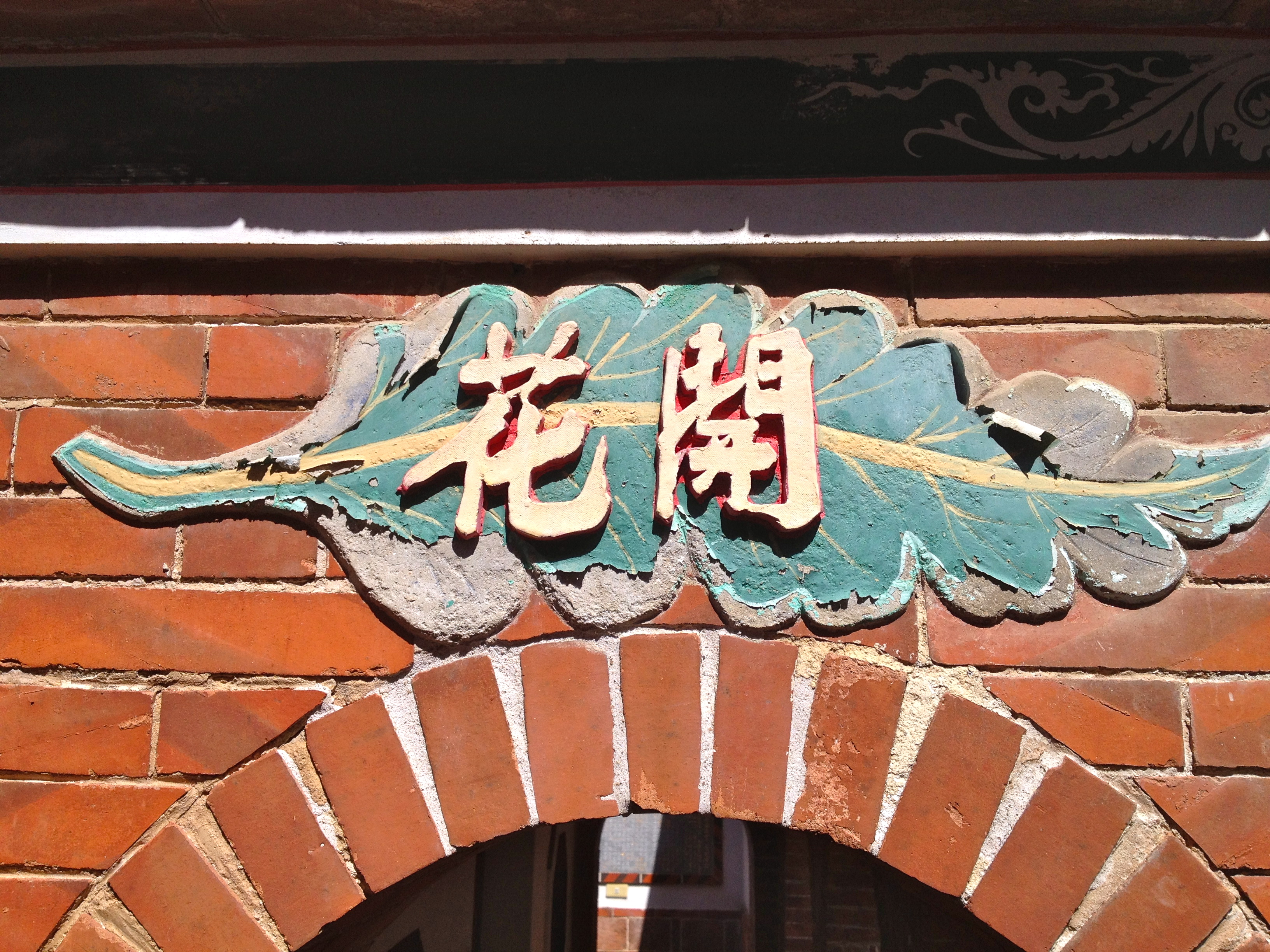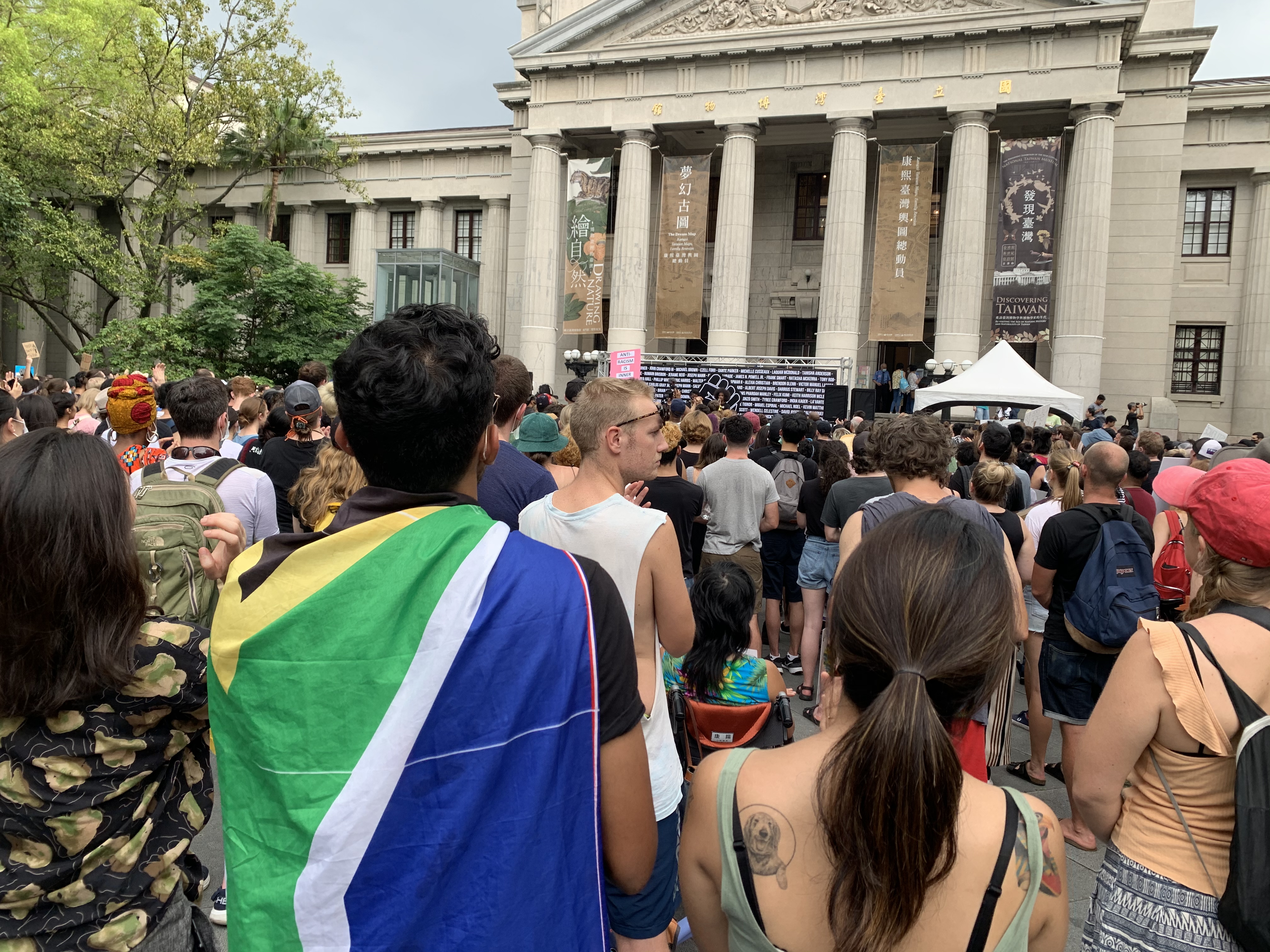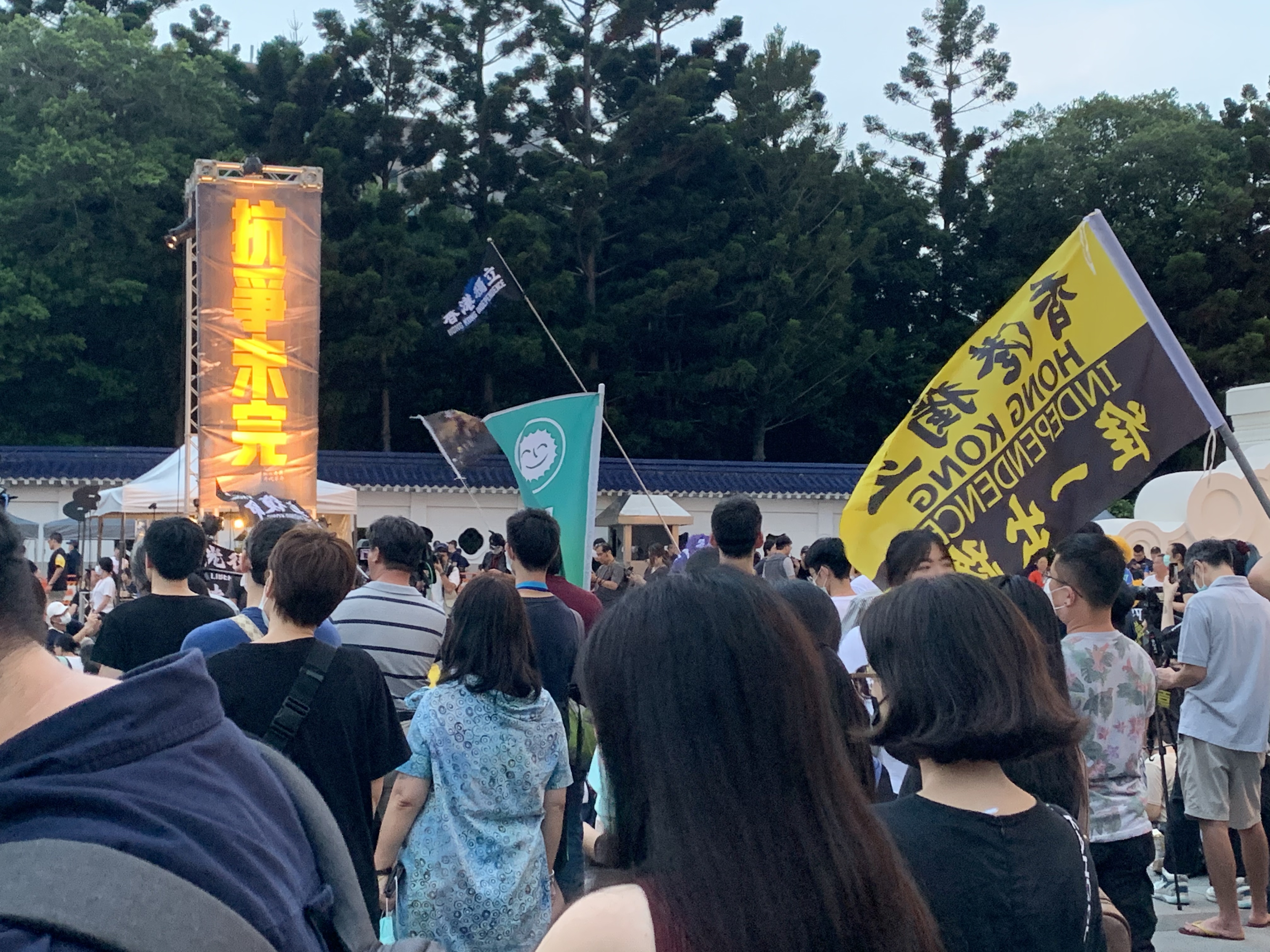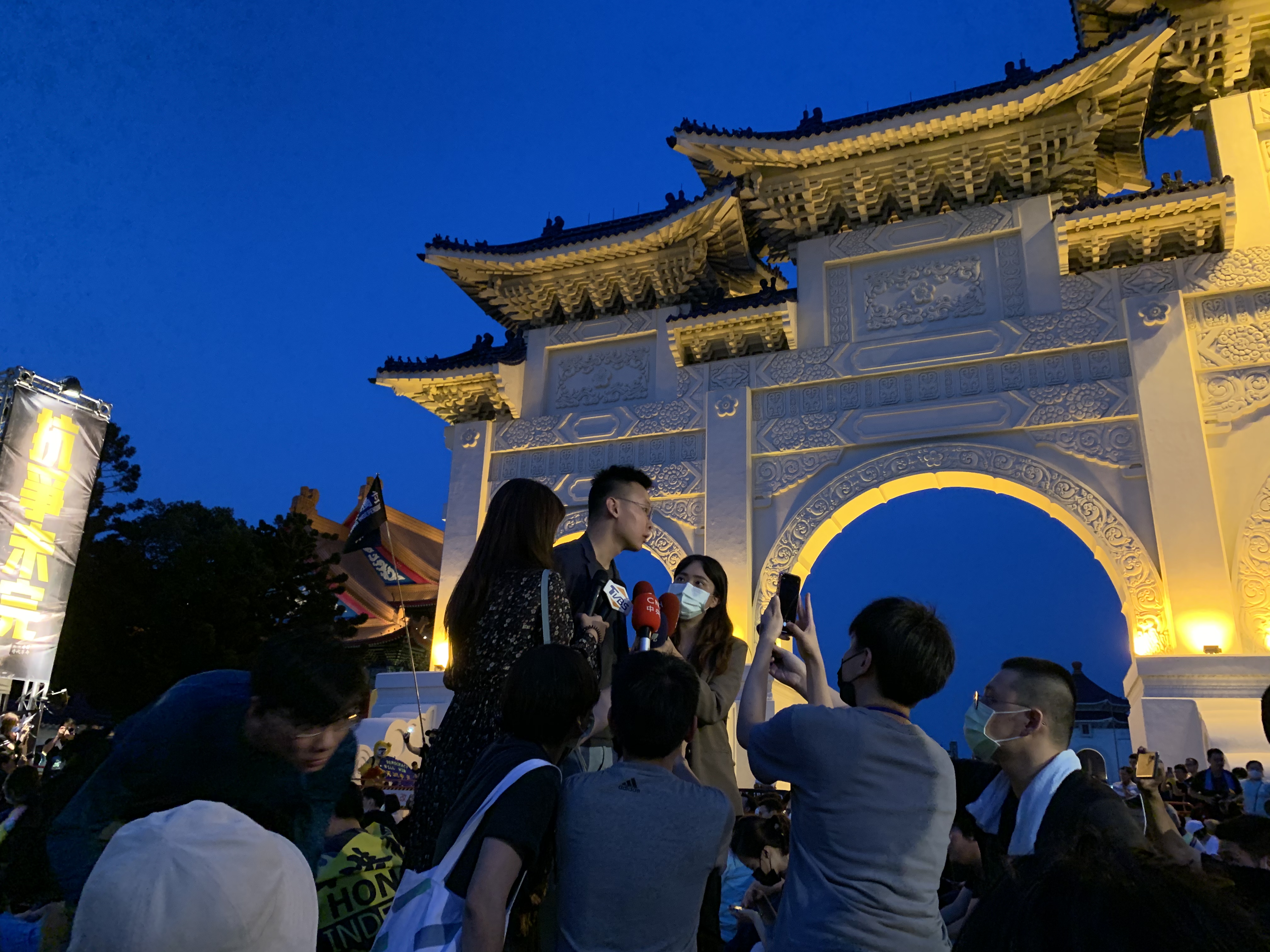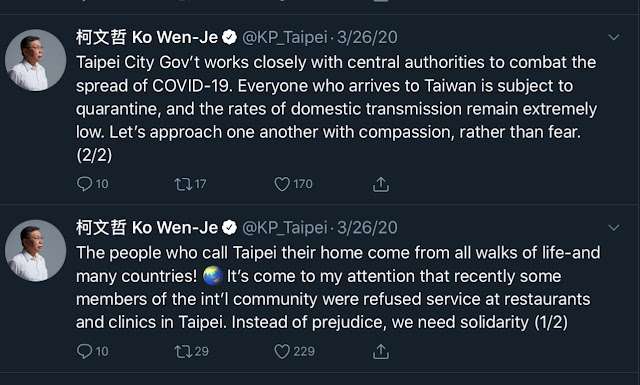For months, I've been lobbying Last Week Tonight to do a segment on Taiwan. There was a Facebook group and a petition, which were covered by the Taipei Times. It was a thing, though I didn't always have the energy to give it the momentum it needed, although I did try to provide a steady influx of fun pro-Taiwan memes. Not because the memes should make the show, but because memes get views, likes and shares which would get the actual petition more visibility.
Why Last Week Tonight? I chose them specifically because they did strong segments on China, the Uyghurs and Hong Kong in the past. The Daily Show and The Late Show have blundered on China and Taiwan in the past, getting Taiwan's situation painfully wrong or softballing China. They were not ideal candidates. Oliver handled similar sensitive topics well: he was the guy to do this.
Last night, they actually did the episode! I have no idea if my effort had any impact at all -- perhaps they'd already decided to go this way long before I started any of it. Perhaps they got the idea independently and it was a big, fat coincidence. One of the producers is Taiwanese-American and one of the writers used to live in Kaohsiung, so it's entirely possible this had nothing to do with my petition.
I just wanted the show to happen. It did. That's the win.
When I started this, there was a lot of support -- thanks to everyone who contributed images, memes and translations, and to the Taipei Times for bumping its visibility! -- but also a lot of unhelpful comments. Some could be ignored completely: I don't care if you think John Oliver and his show are dandies of the pseudo-liberal bourgeoisie. Some just said he wasn't funny, or wasn't 'leftist' enough. But who cares?
This was the point: Taiwan needs a moment in front of a mainstream Western liberal audience in a fun, easily digestible format. We need to reach the people who will tune into a late night news satire show, but not, say, listen to Tsai Ing-wen on CNN or read an editorial in the Wall Street Journal. We need that because there's just not enough general knowledge about Taiwan out there, there's a global dismissal of the wishes of the Taiwanese people for their own future, and general solidarity can mean political influence: the John Oliver Effect is real.
The show happened, and it got Taiwan in front of a bunch of new viewers. And it was a great show! Because I enjoy dissecting media, I do want to talk about the segment's strong and weak points. But before going down that road, let's all admit that as a whole, it was an unqualified success. It not only got Taiwan in front of a mainstream liberal audience -- which, again, was the key goal -- but it did a highly competent job, too. On the whole I'd give this a 95% out of 100, and that's a damn good appraisal for someone as picky as me about good coverage of Taiwan (I have no time for half-baked analyses and tired ideas recycled as 'new' and certainly no time at all for pro-China takes when China has missiles pointed at my house.)
Let's start with what they got right, because I want to emphasize that it was indeed excellent.
The messaging was on-point. Any criticism I have is pretty much meaningless in the face of this all-important triumph. They used Taiwanese voices to make points about Taiwan: not only President Tsai but also Sexy Legislator Freddy Lim screaming "Chinese Fucking Taipei, it's FUCKING BULLSHIT!" That's how you do it. Great job. The ending was superb: how can you go wrong with supporting Taiwan deciding its own future?
The show got the 'stacks of warplanes' right, and pointed out that they've been electing people who are pretty comfortable calling Taiwan independent. They used amusing media -- butt plugs, John Cena, a WHO representative (figuratively) pretending to have a brain hemorrhage to avoid talking about Taiwan -- to make strong points and showed just how cringey it is for the world to so clearly want to avoid talking about Taiwan for fear of shattering so many glass hearts in China.
The history was done quite well: I'd give it a 99%. I would not have made it sound as though the Qing governed all of Taiwan (mostly, they didn't -- they held about a third until the final decade or so of their rule), and perhaps 228 deserved a moment. But the White Terror got a lot of time, which frankly it needed. Now millions of Americans who don't know that Taiwan was once a Japanese colony and KMT military rule was horrible, which they might not have known two days ago.
The murky jungle of communiques and carefully worded agreements and acts was also handled quite well, with the top-notch Kharis Templeman explaining how the US acknowledges but does not necessarily accept the Chinese claim on Taiwan, and that Taiwan's status is undetermined. I've never liked 'strategic ambiguity', and perhaps the fact that it's no longer very ambiguous could have been mentioned. The US has never been clearer! However, a lot of viewers likely thought that the US simply believed Taiwan to be a part of China. Now they know that's not the case. It's a win.
I'll even take the mascots, because Last Week Tonight loves those. I'll take the bubble tea, even though it feels like an obligatory inclusion. I'll take John Cena even though I literally do not know why he's famous.
So we've got:
Mostly strong history of Taiwan highlighting how it's not particularly Chinese & how awful the KMT was (check)
Freddy Lim screaming that Chinese Fucking Taipei is Fucking Bullshit (check)
Pretty good overview of the current US position (check)
Buttplugs (check)
Mocking cringey White Guys with bad opinions (check)
Tsai Ing-wen saying basically "we are an independent country, we don't need to declare independence" (check)
Taiwan deserves to decide its own future (check)
Guy speaking Taiwanese at the end saying "look I'm just trying to live my life" amid quite a bit of Japanese aesthetic (check -- and love the inclusion of the Taiwanese language!)
I'll take it!
It is worth discussing the weaker aspects, however. If you just wanted to ride the love train, you can stop here -- this is more of an exercise in media dissection than actual criticism. I loved the show, and I want to keep that clear. Even the parts I didn't love achieved their goal, and I love that goal.
First, let's talk about the way Oliver discusses Tsai's own words. I'm not a huge fan of this: he makes it sound like she's in favor of 'maintaining the status quo' and 'not declaring independence' when that's not exactly what she said. It's true that she chooses her words carefully (she has to), but here are her exact words:
The idea is, we don't have a need to declare ourselves an independent state, we are an independent country.
I suppose it's true that she's 'drawing a line' at a 'declaration of independence', but she didn't say Taiwan would 'stop short' of a formal declaration of independence. She offered an entirely different perspective: that there is no need to declare independence formally, because Taiwan is already independent. Would you need to ask any other country to declare independence formally, when they are already functioning independent states? No. So why would you need to ask it of Taiwan?
That is, honestly, one kind of pro-independence position, and that was the position she was elected on.
"Independence" can mean many different things, including believing that there is no need to formally declare what you already are. If the only way to be fully "pro-independence" is to be "in favor of a formal declaration of independence", then that shoves what can and cannot be considered 'pro-independence' to the sidelines. It forces it to remain a fringe opinion and pushes everyone who holds it to sound radical, when it's not and they're not: it's mainstream. Pro-independence supporters are not a fringe element, so defining it to make them so is disingenuous and weak analysis.
The second weak part was the discussion of the 'status quo'. The poll they cited is not particularly reliable; specifically, the questions are formed in such a way that if you're worried about a war of any kind, many with pro-independence leanings are going to choose 'the status quo'. What they're actually choosing isn't the 'status quo', which is not tenable and not desirable in and of itself. They're choosing sovereignty without war.
That, again, is a functionally a pro-independence position. Any other interpretation relegates 'independence' to the fringe of Taiwanese political discourse, when it's not.
While Oliver did mention that 'the status quo' can mean different things to different people, he didn't elaborate. When you talk about the status quo, you really have to point out the conditions under which people are answering: with guns to their heads. Literally, if you consider Chinese missiles and warplanes to just be fancy flying guns.
Who would choose the status quo if they did not have a gun to their head? Perhaps some people -- certainly some internal disputes about the name of the country would have to be worked out -- but I doubt it would be many.
Since 'the status quo' requires that much elaboration to be even remotely clear, I would not have gone with such a weak premise. It just wasn't the best choice if the time wasn't there to elaborate. That was to the segment's detriment. Instead, it's better to pick something that paints a clear picture, shows that there's some internal disagreement but also highlights the strong consensus that exists alongside it: Taiwanese identity.
Around 70% of Taiwanese identify as solely Taiwanese. About a third identify as Taiwanese and Chinese, with other research showing most of those prioritize Taiwanese identity. About 2% -- less than the margin of error -- identify as solely Chinese.
That shows some internal divergence of opinion while clarifying that there is indeed a consensus, and that it's not to be a part of China, in whatever form that takes. "Status quo" data can be brought in to show that there's a strong preference not to fight a war if at all possible, but that's about all it's good for.
The second part I thought was just 'okay' was the section on Taiwan's armed forces. It's true that recruitment is down, the topic flows clearly from the previous point, and the video is amusing: I imagine that's why the writing team decided to include it.
However, it has the side effect of once again making Taiwan seem more divided than it is. Nobody reasonable would argue that all Taiwanese are in alignment with their desires for Taiwan's future. I don't think any country can claim that (though many governments try to). But there is a consensus of sorts and it deserved to be sussed out a little more.
The armed forces are not having trouble recruiting because people are unwilling to fight China. Of course, nobody knows what they'd do in a real wartime situation, but polls show that most are, indeed, willing to defend their country. That's the best data we've got, so anyone wanting to imply Taiwanese would not fight needs to do a lot of legwork to prove that as the numbers are not on their side. I suspect most people willing to defend Taiwan aren't joining the military because they figure that if there's a real war, they'll be called up to fight anyway. That's reasonable!
If ambivalence about China isn't the reason why military recruitment is low, then what is? Mostly that the military doesn't offer a great career path. It's not seen as desirable or something for 'intelligent' people to do, which is a shame when you have a defensive force facing a huge superpower like China. The pay is mediocre, and while you can retire young and get a good pension -- last I heard you could get 50% pay after leaving a military career at 40 -- overall it's just not a prestigious choice.
The other reason has to do with Taiwan's own history. The military used to be the oppressors. Do you really expect the descendants of people the military routinely detained, disappeared, tortured and killed are going to be signing up in droves to train with them? To fight under that white sun and blue sky symbol that oppressed them for so long? I'm not Taiwanese, but the thought of doing that gives me the shakes.
The military doesn't have a recruitment problem due to ambivalence about China. They have it because they don't provide attractive career opportunities, and retain some symbolism of an authoritarian past.
Finally, I wasn't a big fan of starting out by calling Taiwan an "entity" (it's a country) and then using the verb "reunify" (which they do once because Xi Jinping says it -- fine -- but it comes out of Oliver's mouth once too. Less fine). He does, however, use the term "country" later on, which I acknowledged, and the show itself has said they tried to limit usage of "reunify" to parts where they were discussing the Xi/China viewpoint. That's fair.
Don't take all this criticism too seriously
At the end, the segment sticks the landing. The messaging is on point, and the weaker parts don't detract from it. There are also things I would have included: Taiwan's amazing COVID response (yes, it's still amazing), marriage equality and other progressive credentials and perhaps a little less on the weaker 'status quo' and 'military' sections.
But as it is, it's great work -- better than I expected from a Western media outlet, and better than anything Last Week Tonight's fellow satire news shows could have offered. Indeed, that's why I chose them for the petition and Facebook page.
I'm not dissecting it to discourage future media from taking on the topic of Taiwan: I'd love it of more of them did, and made an effort as earnest as Last Week Tonight in doing so. As I've said many times, really only friends and Taiwan insiders who already care about this country are likely to read Lao Ren Cha. The wider world won't, because it's a niche blog. So this is for the insiders, to see the segment disassembled and examined. It's not a warning to Western media that they can never do Taiwan well.
Clearly they can, if they want to. Last Week Tonight just did!
This segment gets the right message in front of the right audience, which simply writing about Taiwan was never going to do. That's a win, and I'll take it.


